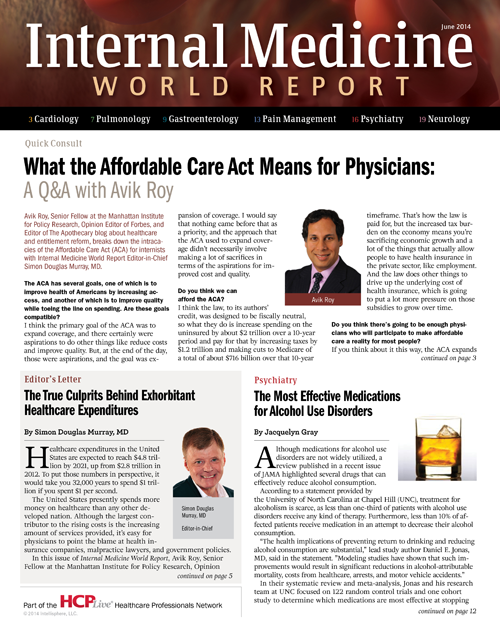Publication
Article
Internal Medicine World Report
Smarter Quality Measures Needed for Colorectal Screenings in Elderly
Author(s):
Under current quality measures, colorectal screenings are being overused in sick elderly patients and underused in healthy ones.

Under current quality measures, colorectal screenings are being overused in sick elderly patients and underused in healthy ones, according to a study published in BMJ.
For the study, a research team led by Sameer Saini, MD, of the University of Michigan (U-M), examined whether the most recent recommendations of the US Preventive Services Task Force (USPSTF) are associated with an overuse of colorectal screening among sick patients aged between 70-75 years and an underuse among healthy patients aged older than 75 years. While age can be a reliable proxy for life expectancy in the elderly, it varies considerably based on health status, according to the researchers.
The investigators performed a retrospective study using electronic data from the Veterans Affairs Center for Clinical Management Research (VA-CCMR) that identified veterans who were due for repeat screening in fiscal-year 2010., focusing on those who had undergone a previous fecal occult blood test with negative results in the 2 years prior to their 2010 visits.
“The way quality measures are defined has important implications for how care is delivered,” Saini, who is also a research scientist at VA-CCMR, said in a statement. “By focusing on age alone, we’re not screening everyone who’s likely to benefit, and some people who are not likely to benefit are being screened unnecessarily, like those with severe health problems.”
As a result, he argued quality measures accounting for age and health status would provide better outcomes than age alone.
At the conclusion of their study, Saini and his colleagues found colorectal screenings were more common among younger, healthier veterans, as the rate of screenings stabilized from age 50 to age 75 and then declined abruptly after age 75.
Of the veterans aged 70-75 years, 16.5% had poor health and shortened life expectancy. Despite the fact that those veterans were unlikely to benefit from a screening, 40% underwent one within 2 years.
Although one-quarter of the veterans had excellent health and good life expectancy — and would thus benefit from a screening — only 16.5% actually underwent a screening within the 2 years prior to their 2010 visit. In fact, the researchers found unhealthy 75-year-old veterans were significantly more likely to undergo a colorectal screening than healthy 76-year-olds.
“Future patient-centered quality measures should focus on clinical benefit rather than age to ensure that patients who are likely to benefit from screening receive it, regardless of age, and that those who are likely to incur harm are spared unnecessary and costly care,” senior study author Eve Kerr, MD, MPH, director of VA-CCMR and Professor of Internal Medicine at the U-M Health System, said in the statement.





